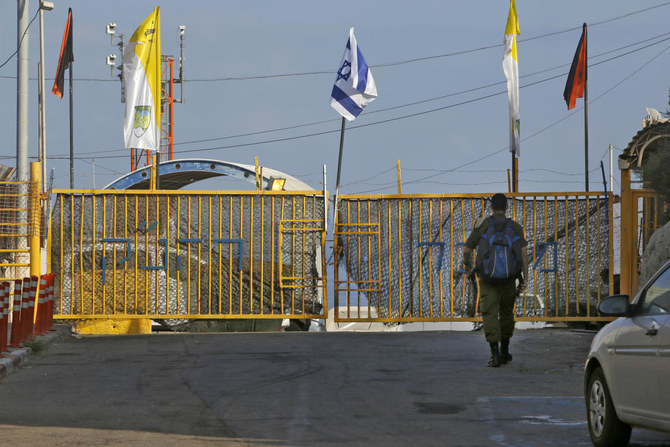BEIRUT: The first round of Lebanese-Israeli talks was held on Wednesday at the headquarters of the UN Interim Force in Lebanon (UNIFIL) in the border town of Naqoura, and concluded by agreeing on Oct. 28 as the date for a second round.
The first round, described as exploratory, lasted an hour, and focused on demarcating the maritime border. The US is mediating the talks, which include the UN.
Journalists were prevented from attending the first round, and the Lebanese delegation refused to be photographed with the Israeli one.
The head of the Lebanese delegation, Brig. Gen. Bassam Yassine, thanked the US for mediating the talks and declaring its intention to do its utmost to help establish and maintain a positive and constructive atmosphere.
He expressed hope that the UN will “make a fundamental and effective effort in terms of organizing the negotiations’ mechanisms and ensuring a smooth negotiation process.”
What is happening is “indirect technical negotiations and a first step in the 1,000-mile road to demarcating the southern borders,” Yassine said.
“We look forward to the running of the negotiations at a pace that enables us to conclude this file within a reasonable time,” he added.
“We also look forward to the other parties fulfilling their obligations based on meeting the requirements of international law and maintaining the confidentiality of deliberations.”
The US government and the office of the UN special coordinator for Lebanon released a joint statement saying: “During this initial meeting, the representatives held productive talks and reaffirmed their commitment to continue negotiations later this month.”
Upon the return of the Lebanese delegation to Beirut, President Michel Aoun was informed of the details of the session.
Hezbollah and the Amal Movement announced on Wednesday morning that they objected to the Lebanese delegation “for including civilian figures.”
Meanwhile, the General Confederation of Lebanese Workers (CGTL) led street protests to reject any decision to remove subsidies on basic goods, medicine and fuel.
CGTL chief Bechara Asmar, who joined the protesters, warned that the removal of subsidies would cause a social catastrophe.
“The security situation will not be stable because the poor will take to the streets and reality will become dire,” he said.
He called for “the formation of a government capable of dealing with the difficult economic situation,” and warned: “No official, even in his home, will be safe from the revolt of the hungry.”
Aoun is scheduled to hold binding parliamentary consultations on Thursday to assign a figure to form the next government.

























